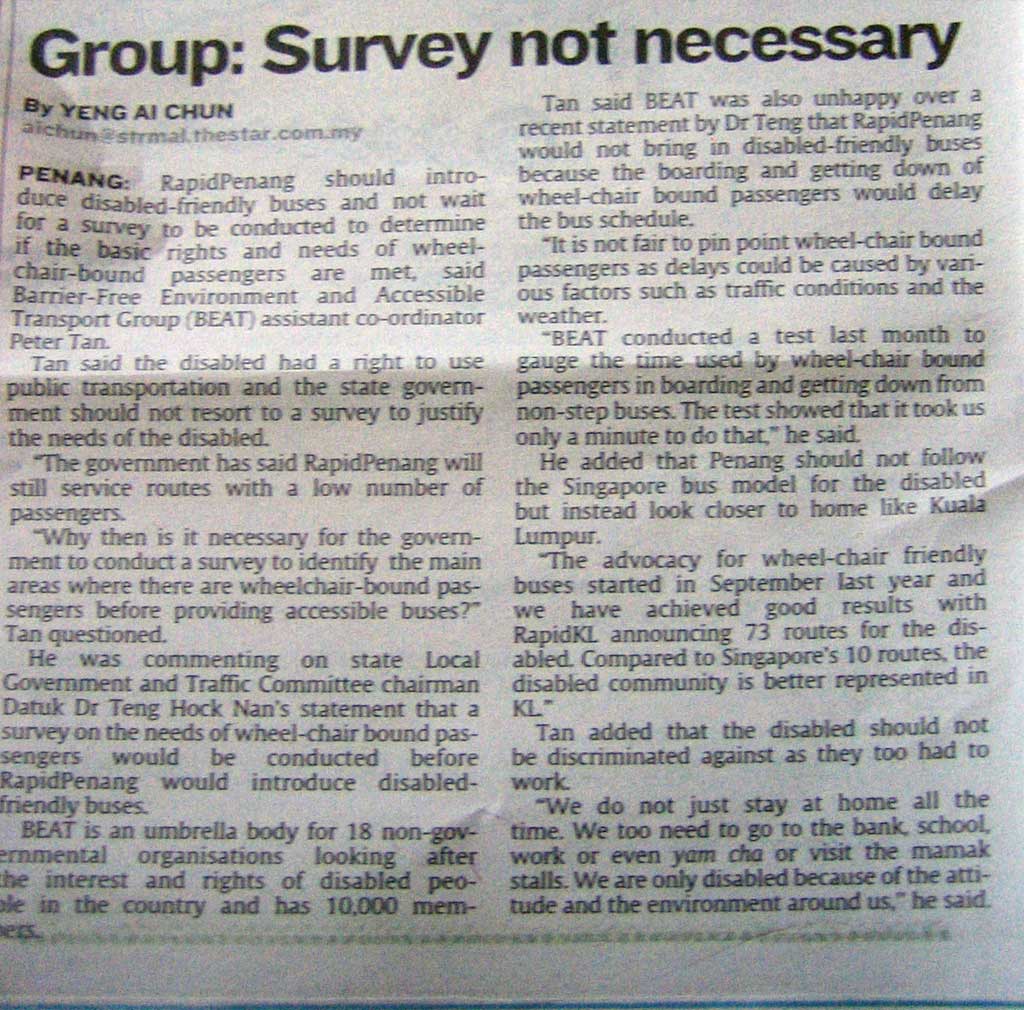North
Tuesday April 17, 2007
Don’t leave us out, urge wheelchair-bound commuters
WHEELCHAIR users do not want to be left behind when RapidPenang’s 150 buses ply the streets in Penang in August.
Barrier-Free Environment and Accessible Transport Group (Beat) coordinator Christine Lee said that non-step, low floor buses should be made available for the public, including senior citizens and wheelchair bound commuters.
She expressed concern over a statement by State Local Govern-ment, Traffic Management, Informa-tion and Community Relations Committee chairman Datuk Dr Teng Hock Nan that the state would not provide special buses for the disabled who use wheelchairs.
She pointed out that the statement contradicted Transport Mini-ster Datuk Seri Chan Kong Choy’s announcement that the transport needs and interests of disabled persons would be included in the public transport master plan, and Second Finance Minister Tan Sri Nor Mohamed Yakcop’s assurance that new buses in Penang would be “disabled-friendly”.
Beat, a coalition of 16 NGOs for disabled persons, urged Rapid-Penang, Syarikat Prasarana Negara Berhad to consider “every Penan-gite’s right to accessible public transport, irrespective of the person’s condition”.
“Non-step buses are already widely used in other countries such as Japan and Australia. They are convenient for senior citizens, pregnant women and adults with prams,” Beat assistant coordinator Peter Tan elaborated.
He said that he had no problem moving around Japan on public transportation when he was there, despite being wheelchair-bound.
“Costs should not be a justifica-tion for not bringing in accessible buses. It will still cost the state government to do so in future. Wheelchair users who are denied their accessibility to buses may not be able to go to work or participate in various activities.
“They’ll be further marginalised from mainstream society,” Tan added.

